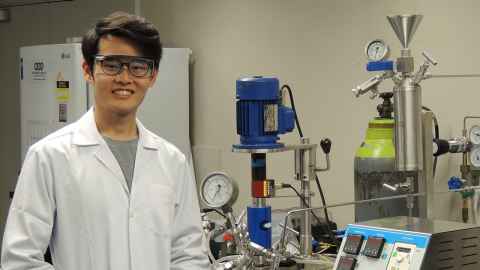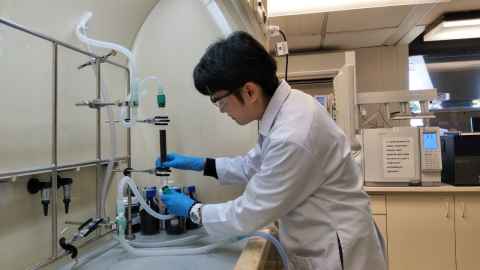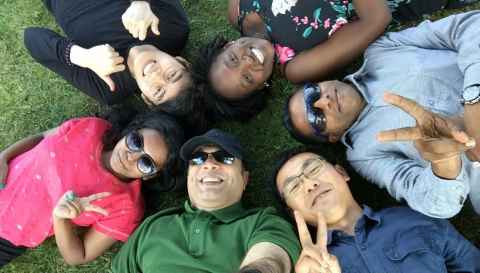Teck Nam Ang
Teck's adsorption research could help to combat climate-changing emissions from a surprising source.

Programme: PhD in Chemical and Materials Engineering
Research topic: Adsorptive removal of volatile anaesthetics from medical waste gases
Supervisors: Dr Saeid Baroutian, Prof. Brent Young and Prof. Margaret Hyland
Academic unit: Department of Chemical and Materials Engineering
Funding: University of Auckland Doctoral Scholarship
Journey to doctoral studies
“I was born and grew up in Kuala Lumpur, Malaysia. When I was a child, I love to watch my mum bake, and I’ve always been curious about how things work, like why a dough can increase in size, how agar-agar (jelly-like substance) solidifies, etc. Sooner or later, my curiosities transformed into an interest in chemistry and biological sciences.
“My first doctorate specialised in environmental biotechnology, and I went on to become a postdoctoral researcher and, later, a senior lecturer at a private tertiary institution in Malaysia.
“As an avid researcher, I always wanted to explore multiple areas with the hope of integrating them into something that wouldn’t just get results in the lab, but something that would be applicable and beneficial to society. I’d been keeping an eye open for opportunities that would allow me to dive deeper into this type of research. After several offers, I decided to come to Aotearoa – The Land of the Long White Cloud.”

Research with impact
“The aim of my research is to help to alleviate the emission of volatile anaesthetics into the atmosphere. You may not realise it, but volatile anaesthetics used for inhalational anaesthesia in hospitals around the world are compounds with similar characteristics to climate-changing CFCs and HCFCs.
“Due to their medical necessity, there is no legislation to control the emission of these anaesthetics and they are released to the atmosphere unchecked. Although the emission amount is small compared to other greenhouse gases, the cumulative emissions from hospitals can amount to a significant quantity over time. Middlemore Hospital, for example, emits about 250,000 minutes of anaesthesia per month – that’s equivalent to a carbon footprint of around 500 round-trip flights from Auckland to London!
“To help solve this problem, I’m working on the development of adsorbents with improved adsorption efficiency for removing volatile anaesthetics from waste gases. I presented some of my initial findings at CHEMECA 2018 conference held in Queenstown last year. I hope that my research raises awareness about this ‘not so subtle’ environmental problem, and contributes to improving the environment and the wellbeing of society.”
I try to be focused and productive at work so that I can have quality time
with my family after working hours. It’s important to achieve a balance between my doctoral studies and my family.
Advice for new doctoral candidates
"Doing a doctorate is like baking a cake: though you might have all the ingredients, you can’t rush through the process. There is lots to see and lots to learn throughout the journey. Systematic planning and implementation are necessary. Your supervisors and advisors will be there to support you during your study. Besides, pursuing a doctorate is not a lonely process; there are always comrades who are supportive and willing to lend their hands and ears during challenging times."
